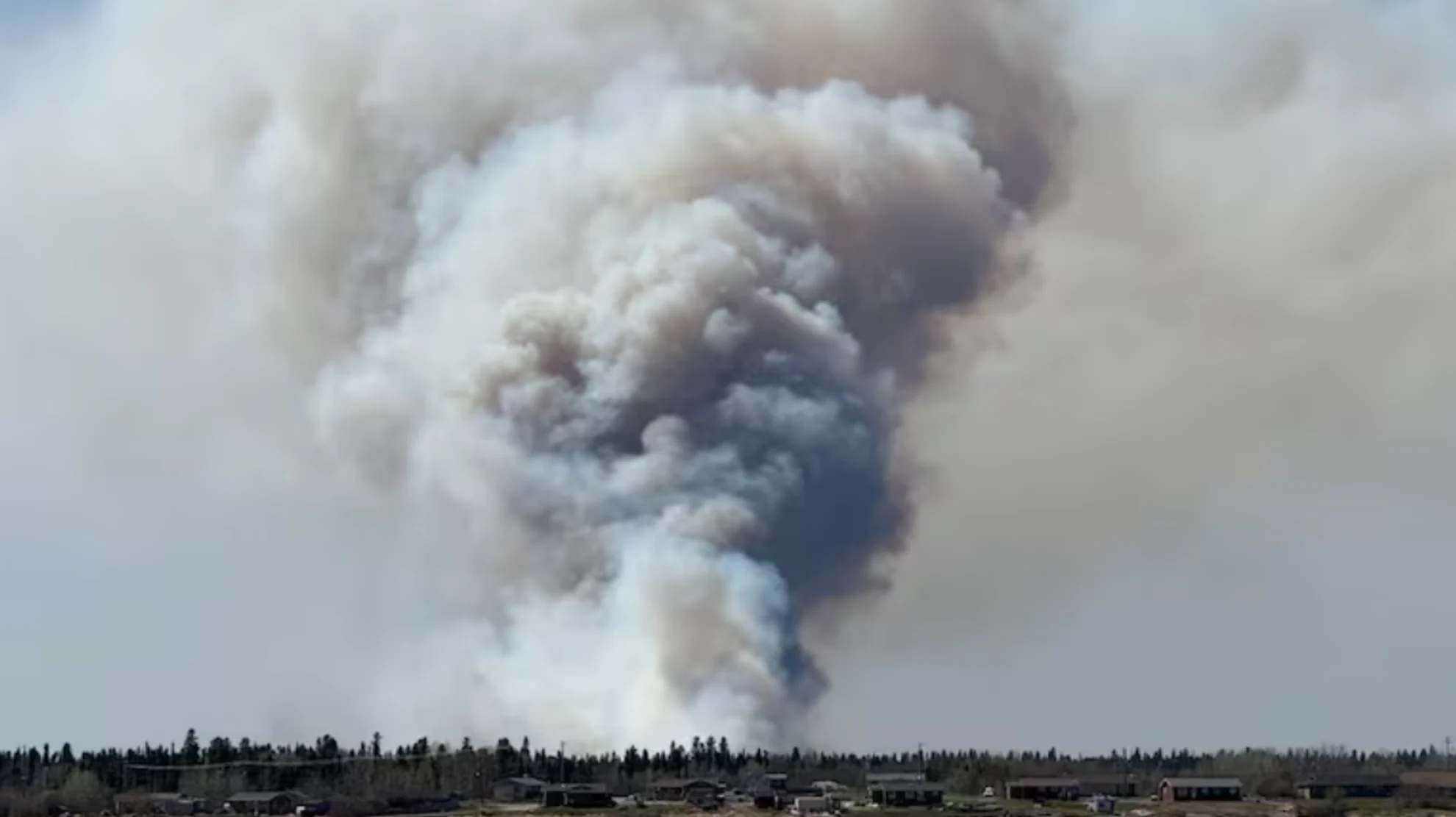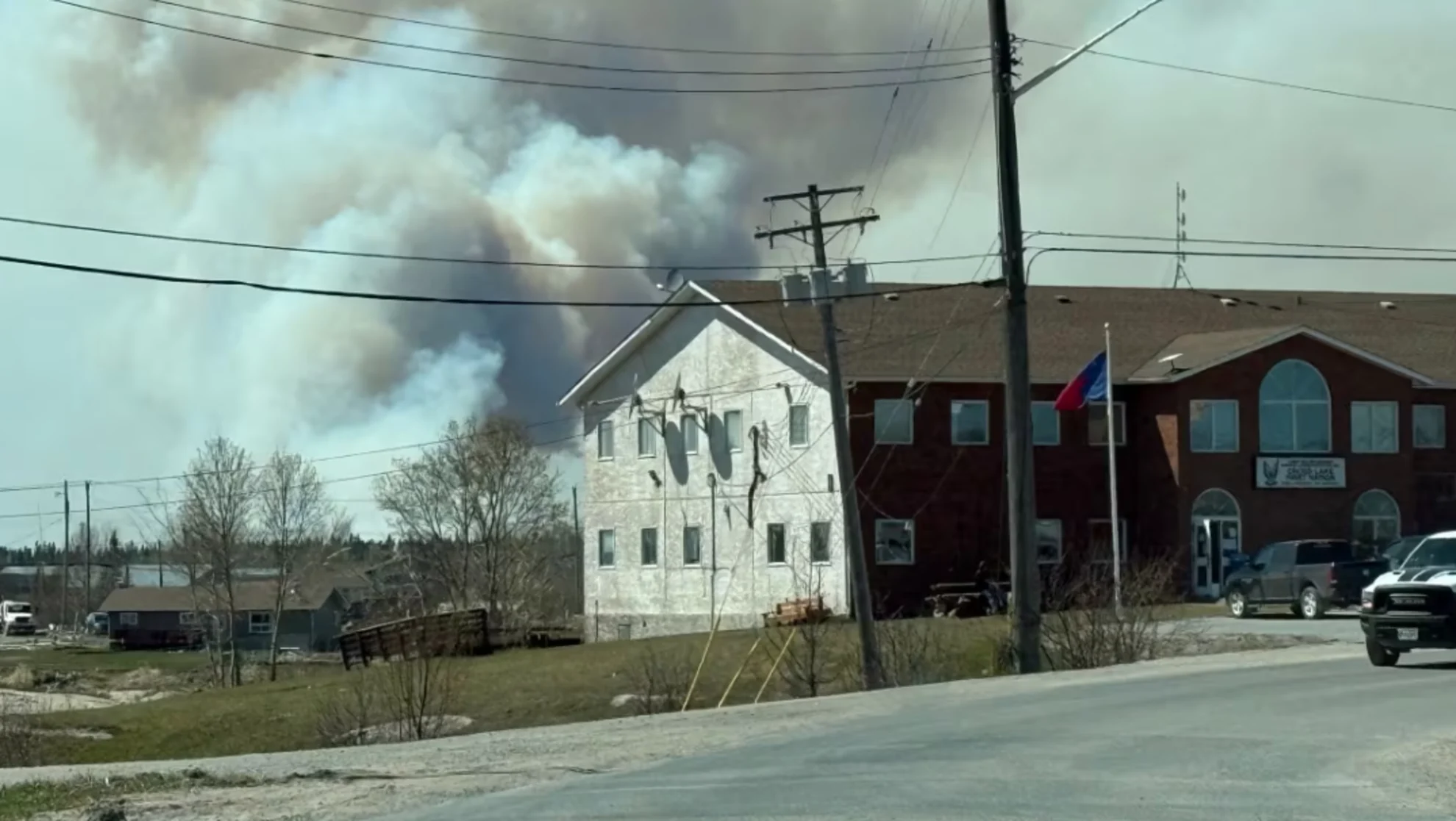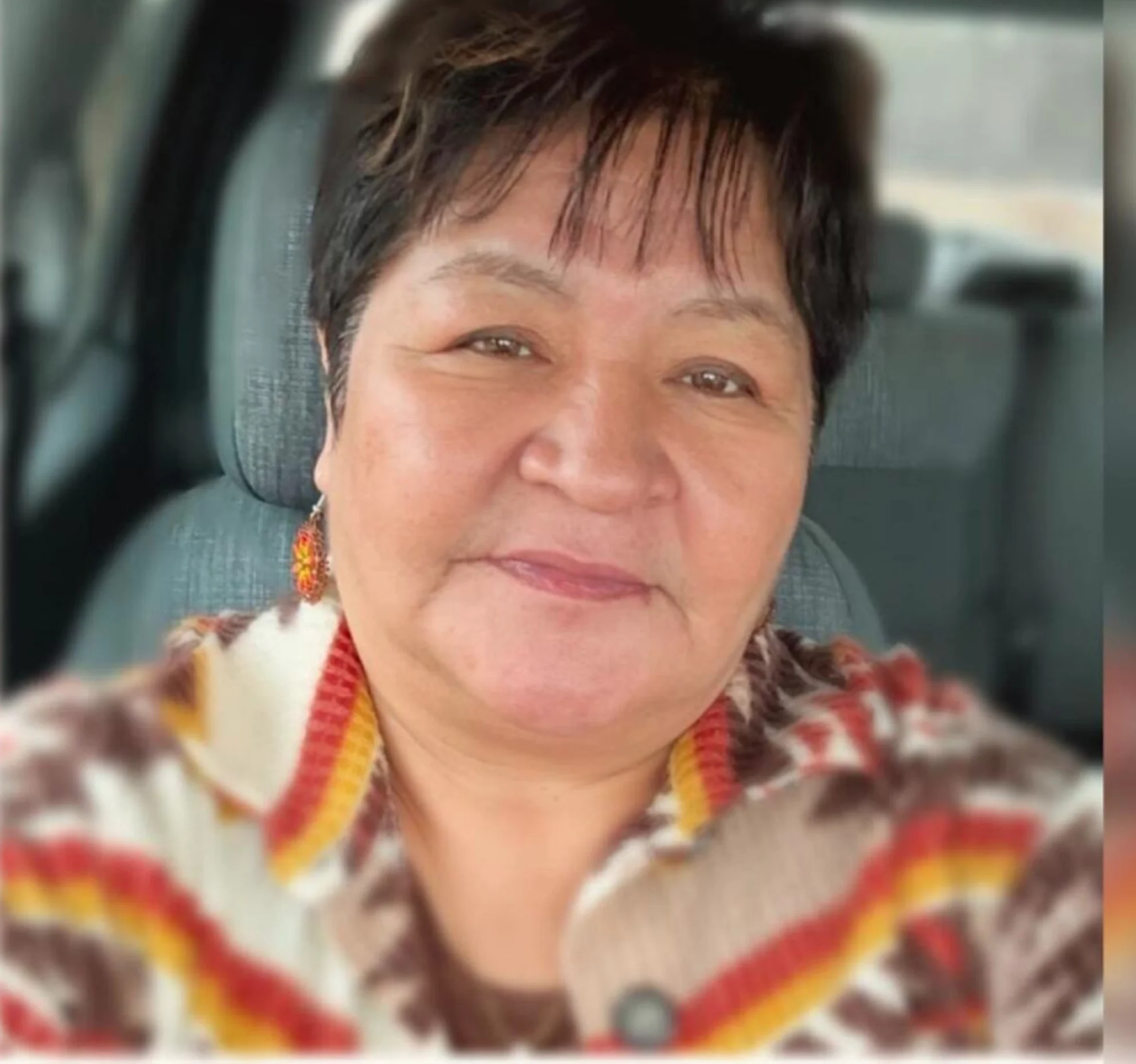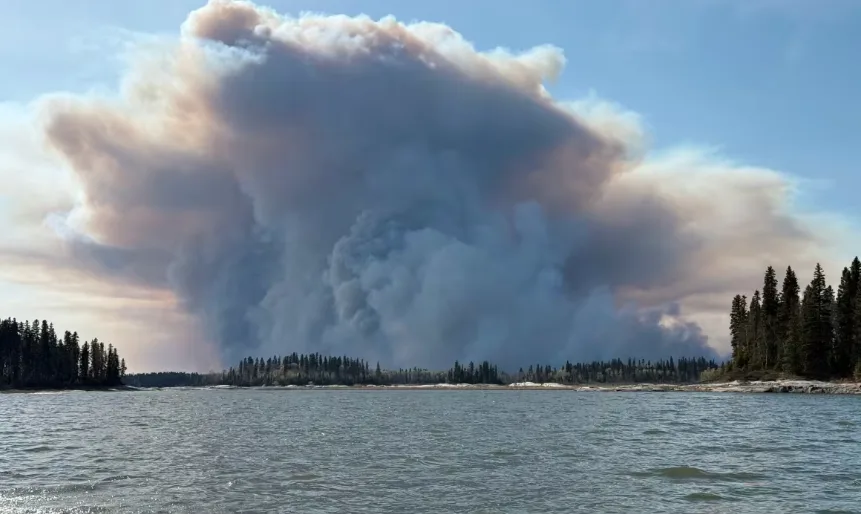
Wildfire smoke force 100s out of their homes in Pimicikamak Cree Nation
More than 300 people living in Pimicikamak Cree Nation have been forced out of their homes this weekend as smoke from an active wildfire threatens the health of vulnerable residents.
The First Nation has made arrangements to evacuate high-priority residents, which includes the elderly and people with respiratory issues.
Five planes have taken evacuees out of the First Nation as of Saturday night, Chief David Monias told CBC.
MUST READ: Nopiming fire leaves herd of endangered caribou at risk
At least 216 people were taken to Winnipeg, which is about 530 kilometres south of the First Nation, while 86 evacuees went to Thompson, Chief David Monias said in a statement posted to Facebook on Saturday.
"We're trying to get these people out as fast as possible before the wind changes," Monias said.
An out-of-control wildfire burning a few kilometres southwest of Pimicikamak has reached 1,500 hectares in size, the most recent fire status report from the province showed Friday.
A five-hectare wildfire, also considered to be out of control, is burning about 50 kilometres southwest of the First Nation.

The First Nation has made arrangements to evacuate high-priority residents for now only, which includes the elderly and people with respiratory issues. (Submitted by Shirley Robinson)
Shirley Robinson, an executive council member at Pimicikamak, said the wildfires are encroaching on the community from both sides.
"People are anxious, they are afraid, they are worried," she said.
A few years ago, a wildfire in Manitoba's Cross Lake region forced everyone out of Pimicikamak, Robinson said, but the evacuation had to be completed in just under three hours.
Now, "some people really wanted to self-evacuate because of all the worry."
Two of Robinson's grandchildren and her daughter are among the evacuees.
"My mind has been with my twins," she said.
Both were born with respiratory issues, and one of them was recently discharged from hospital. As a grandmother she is worried, but she choosing to staying in the community at the front lines, helping get the word out about the evacuations.
"We have to keep doing what we need to do," she said. "Our community citizens are my first priority."

Shirley Robinson, an executive council member at Pimicikamak, said members of the community are feeling anxious as the wildfires surround the community on both sides. (Submitted by Shirley Robinson)
Chief Monias said the evacuation was a precautionary measure for now to protect vulnerable people, given winds were blowing away from the First Nation on Saturday night and there were concerns about the health impact of heavy wildfire smoke.
He said two people died during the last evacuation because of the smoke, and many others got sick.
"They know that the vulnerable people need to be taken care of first, and that's the shared responsibility we have with our members," Monias said.
"They want their kids to be going out. They want their elders to be going out. They want the people who are sick to be going out first."
'Bureaucratic' and 'bottlenecked' evacuation system
But as many as 80 evacuees were left waiting to leave on Saturday.
Monias said the Red Cross is using a "bottlenecked" system to try and get people into hotels in Winnipeg and Thompson.
"While we are able to get people out, it's really hard to get people into the hotels because the system that the Red Cross has is very bureaucratic," he said.
The process has been time consuming because each evacuee is registered individually, which can take up to 30 minutes per person, Monias said. Some have to repeat the process multiple times before they can get assigned to a hotel.
The wait has amounted to up to nine hours for some, including evacuees in wheelchairs and with amputations.
"They have to have a say in who is getting approved to stay in the hotel … rather [than] decentralizing that authority, decision-making power to the people that are on site here," Monias said of the Red Cross.

Wildfires are encroaching on the Pimicikamak Cree Nation from both sides, one of them burning over 1,500 hectares by Friday a few kilometres southwest of the community. (Submitted by Shirley Robinson)
He said he has also been calling hotels directly and is offering to pay for rooms himself, but he has been told the Red Cross has to authorize it.
And the hotels that they are at — the Hilton and Country Inn in Winnipeg — are not accessible enough, he said.
"It may seem minor to some people, but when you're handicapped and wheelchair-bound, these are big obstacles for people," Monias said.
"They just don't know our people. They just need to be able to trust us and to work with us."
A spokesperson for the Canadian Red Cross said the organization has "worked hard" to secure hotel rooms that met the specific needs of evacuees and their families, with those who had been forced out of the community to Winnipeg and Thompson having an accommodation assigned by Saturday evening.
"This is a stressful time for many people and our teams are working as quickly as possible to secure accommodations that meet their needs," the spokesperson said in a statement Sunday afternoon.
This article, written by Lauren Scott, was originally published by CBC News. With files from Arturo Chang, Gavin Axelrod and Santiago Arias Orozco